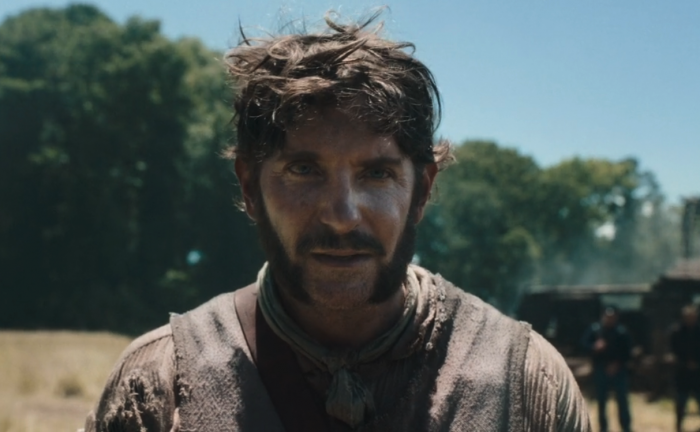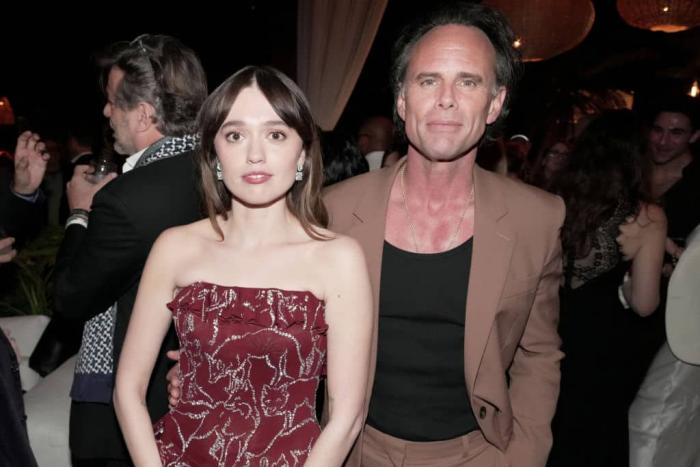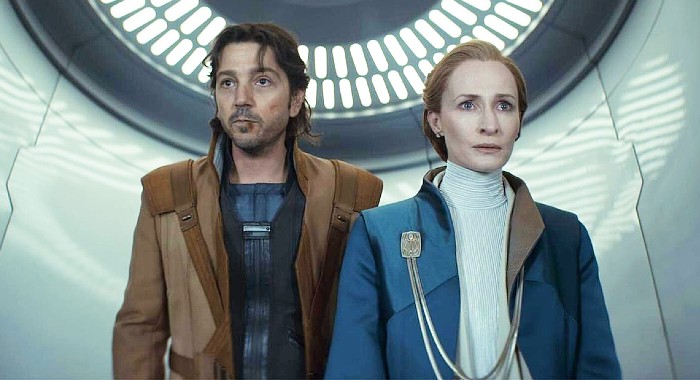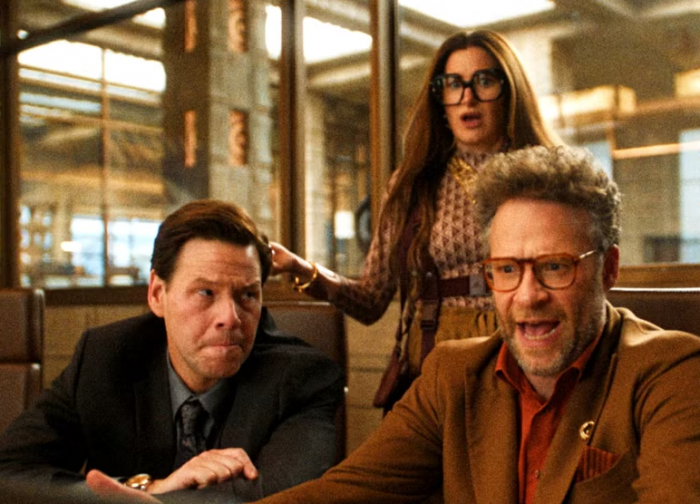
Why We Say 'There Are No Good Cops'
By Seth Freilich | Politics | June 5, 2020

Recently, someone I know took issue with the “f**k the police” rhetoric that says there are no good cops, that all cops are bastards. He says a lot of cops are good cops who care, so it’s not right or fair to say there are no good cops. You know what’s not right or fair? That we allow Black men and women to be disproportionately abused, criminalized, and murdered.
Except, it’s not really that we allow it.
It’s that all these supposed “good cops” allow it.
Last year, seventeen-year-old Narain Dubey wrote perfectly about changing the social narrative about policing in America:
People are quick to challenge discussions of police violence with the idea that “not all cops are bad cops.” But when we argue in defense of the morality of individual police officers, we are undermining a protest of the larger issue: the unjust system of policing in the United States. When I met Wesley Lowery, a journalist from The Washington Post, he was adamant that the social narrative regarding police brutality in the United States needs to change. “Conversations about police reform and accountability are about systems and structures, not about individuals,” said Lowery.It is not that some police officers aren’t doing admirable things in our communities, but revering police officers for not abusing their power is dangerous — it normalizes police violence and numbs society to these issues. The idea that “not all cops are bad cops” belittles attempts to uproot the system. When we go out of our way to controvert this fight, we are perpetuating the inherent problems with racialized policing.
A few years ago, The Root’s Michael Harriot similarly offered his argument for why there are no good cops. It’s a good read worth your time, but what really struck me was this:
If a well-meaning, good-hearted citizen sat in the back of a room while his cohorts planned a murder, he would legally be a co-conspirator—and therefore a murderer—even if he didn’t pull the trigger. Like … the 16 police officers on the scene who saw the murder of Laquan McDonald and said nothing during the year before the video was released. Only one man pulled the trigger, but they are all murderers.
And this:
It is difficult to believe that there are good cops who genuinely want to protect and serve but who also stay silent when fellow officers with predilections for racism or violence are not called out on the carpet. The cop who shot Tamir Rice had a documented history of instability in pressure situations, yet no other officer pointed it out. Daniel Pantaleo, the New York City police officer who strangled Eric Garner, had been sued three times for violating the rights of black men but still wore a badge and carried a gun….
And. Well. This too:
It is the responsibility of the mythical “good cops” to rid their departments and precincts of the pariahs; it is not ours. If they do not do so, then it is absolutely fair to lump them in with the rest of the men and women who wear the same uniform. They have the burden of proving to us that they are not all murderers, rapists and abusers of freedom.
As Dustin said yesterday, “police abuse cannot be curbed without fixing police unions.” And if “good cops” really cared about reforming the whole system, they’d stand up and tell their unions to allow reform to happen. They’d demand that reform happen, that (at a minimum) their precinct adopt the #8cantwait policies. And they’d march with us. And if the union still gets in their way, they are the ones empowered to get new union leadership.
(I know some think #8cantwait doesn’t go far enough and I think there are good arguments on both sides there. Let’s save that for another day — even embracing that would be such a huge step forward, I hope we can all agree on that.)
Have you seen what’s been happening this week? I’m not posting or linking to any of these videos because they’re traumatic and, frankly, I can’t go pouring through my timeline to find them all because there are so many and they’re so soul-crushing. But god damn it how many abuses have we seen this week? Cops getting violent because we’re simply asking them to stop committing murder. Last night, Roxana posted a video in the Pajiba slack and she threaded it because it was not pleasant. I thought for sure it would be the video I had seen of LA cops batoning the shit out of a number of peaceful protestors for no good reason. Nope, it was a video of Buffalo cops knocking an old man down and leaving him on the ground while his head bled out.
There are so many of these videos. Videos of peaceful protestors getting lit up by cops, tear-gassed, assaulted, and abused. Yesterday I saw a video of a woman getting groped by a cop and when she reflexively pulled away, she got her ass beat. I’m sure we all saw the video of the pregnant woman sitting in a car who had multiple tear gas pellets shot at her?
The video of the guy just riding his bike across the street while a cop beats on him just because?
The video of a cop who, while his partner pins a man down, puts a stick in the man’s hand to then give him “cause” to beat on the man?
Or the video of the Philly cop who went out of his way to mace protestors, and gave the one minority protestor some extra shots for good luck?
So. Many. Videos.
And in all of this, where are these “good cops?” When those Buffalo cops knocked the shit out of that elderly man, one of them tried to go over and bend down (giving him the benefit of the doubt he doesn’t deserve) to maybe help. And another cop, seemingly a “good cop” because he didn’t push the old man over, pushes the cop to keep on walking. All these “good cops” just keep walking. The two who pushed the man were suspended, but we know they’ll be back on the street in no time because of their union. And we all know that if there wasn’t video, if we all weren’t focusing on this so hard right now, none of the other cops there would’ve spoken up, and these two cops wouldn’t have even gotten a slap-on-the-wrist suspension (in fact, even with video, the Buffalo PD’s initial statement was that the man “tripped” - they try to lie despite what our eyes can see).
With each nauseating video this week, the “good cops” have by and large remained silent. Sure, a handful of individuals have spoken out against a handful of the incidents. But if there were truly so many “good cops,” if this was just some rotten apples and not a spoiled bunch, wouldn’t we see justice here?
But, some say, can you really blame them all for a few bad apples? Well, as Damon Young wrote, there are no good apples:
I’m actively endangering the lives of other black people when I ask them to be less skeptical, less cynical, and less guarded around cops; even the ones I happen to personally know and love. Because considering them to be good apples—and asking other people to share that consideration—requires a level of cognitive dissonance that asks that we (that I) consider one set of insignificant and insufficient data (I happen to know them) and ignore the rest. It is safer, it is smarter, it is right to be wary of all in uniform. To be suspicious of all in uniform. To consider all in uniform to be bad apples. This doesn’t mean that they’re bad people; just that, as long as they’re in uniform, as long as they possess the power and privilege to shoot and kill us, as long as Atatiana Jefferson and Botham Jean and Sandra Bland and Antown Rose and Mike Brown and Tamir Rice are dead, it doesn’t matter.
So yes, we can certainly hope and presume that most who put on a badge are good people. But these good people, who we presume are the majority, are a silent majority. And that silence is allowing this system that is rotten to its spoiled core to continue festering, to continue subverting justice, and to continue murdering Black people.
But, some say, we’ve seen those cops take knees with and hug protestors, what about them? It’s performative bullshit. We’ve also seen some of those very same officers turn around and abuse protestors minutes or hours later that very same night. I don’t want those officers on their knees or hugging me. I want them on this side of the barricade, fist in the air, demanding reform.
But, some say, the job is hard and dangerous so don’t we have to cut them slack? For sure their job is more dangerous than mine and probably yours, but it’s maybe not all that more dangerous. But they choose this job and accepted that risk. Yet through their unions and failing to speak up, they refuse to be trained in de-escalation, in ways to mitigate risk that doesn’t immediately escalate to “kill the minority.” Non-violent de-escalation isn’t easy, but if therapists can learn, pretty sure cops can:
I worked with people with mental illness and violent offenders as a therapist for years. I was trained in de-escalation and in the proper way to physically restrain clients who were endangering themselves or others. I carried no weapons. And I was just a fucking therapist.
— Emily V Gordon (@emilyvgordon) June 4, 2020
The fact that the job is dangerous can’t possibly excuse the “good cops” from failing to speak up, from failing to fight for what’s right, and from failing to learn how to be better.
But, some say, isn’t the problem really with the people and policies at the very top and there’s nothing the “good cops” can do about that? Of course, the people and policies at the very top are broken, and voting in better Mayors and Attorneys General, fighting for the appointment of better police chiefs, that can only help. But there’s a playbook for reform and, as members of President’s Obama’s policing task force wrote yesterday, we’re just not following it:
The task force’s final report in May 2015 outlined specific improvements that can make policing more just, safe, effective, and constitutional — and work better for everyone. … The very first pillar was building trust and legitimacy — in recognition that they are not just prerequisites for police reform but for policing itself.The group recommended that police departments have clear, specific policies on when officers can and cannot use force. With the courts for the last 30 years telling officers that they may only use force whenever reasonable under the circumstances, officers are left to their own judgment. Individual police agencies and cities must step in to provide clear, precise guidance and real-world training on when force is appropriate…..
The report emphasized the importance of community policing as a principle that “should be infused throughout the culture” of police departments, with law enforcement whenever possible focusing on positive and productive nonenforcement interactions with community members.
…
Yet most American police agencies have not incorporated the task force’s reforms. … Too few departments meaningfully involve the community in setting policies or designing officer training. The number of departments that provide officers with in-depth training on procedural justice — or the process of ensuring fairness, voice and transparency in police interactions — is far too low.
This type of reform can and should come from the top down. But it can’t be met with resistance. It must not just be welcomed but invited. The unions need to get the f**k out of the way and let this reform happen. And, again, that could occur if all these “good cops” spoke up.
(As another aside, that reform playbook speaks to “community.” More and more, stats show us that cops are not actually policing where they live, and that makes them less of a community resource and creates more of that “us versus them” mentality that is so poisonous to the system.)
The Police, as an institution, are supposed to protect each and every one of us. But the system is so heavily militarized, so steeped in racism, so trained to exercise dominance, that it’s completely lost its ability to do that. As the engineers in my day job would put it, all of these problems are features, not bugs.
I’ll end with some words from a former Kansas City dispatcher Tonya Staeger (this whole article is poignant and worth your time):
I’ve come to realize the role I have played and how I’ve contributed to this problem. If I accept responsibility for my part, perhaps others will recognize it in themselves…. Are some officers honorable? Yes. Are some corrupt? Yes. Does our silence about the corruption make us complicit in their bad and sometimes criminal behavior? Yes. Our chosen silence makes us as corrupt as they are, even the “good” officers still working today. Like me at the time, they remain silent for a variety of reasons. I could stomach (and rationalize) it at the time, but there’s no way I could today….Here’s the point I’m trying to make: If we are all silent, then we are all guilty and should be rightfully grouped together as bad cops … It’s not easy. I didn’t do it. It may end your career, but it’s the only way to restore honor to probably the most difficult job on the planet.
And there it is. Yes, absolutism can be, and often is, dangerous. But when the cops act as a single entity, standing in lock-stop behind their thin blue line, resisting and actively pushing back against reform like it’s just another peaceful protester … how can anyone truly say there are good cops?



